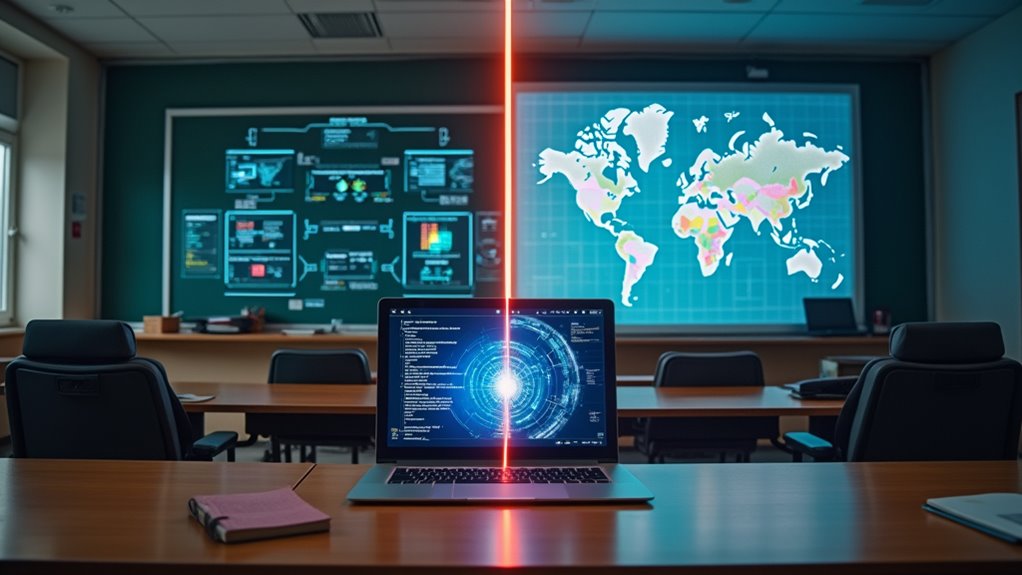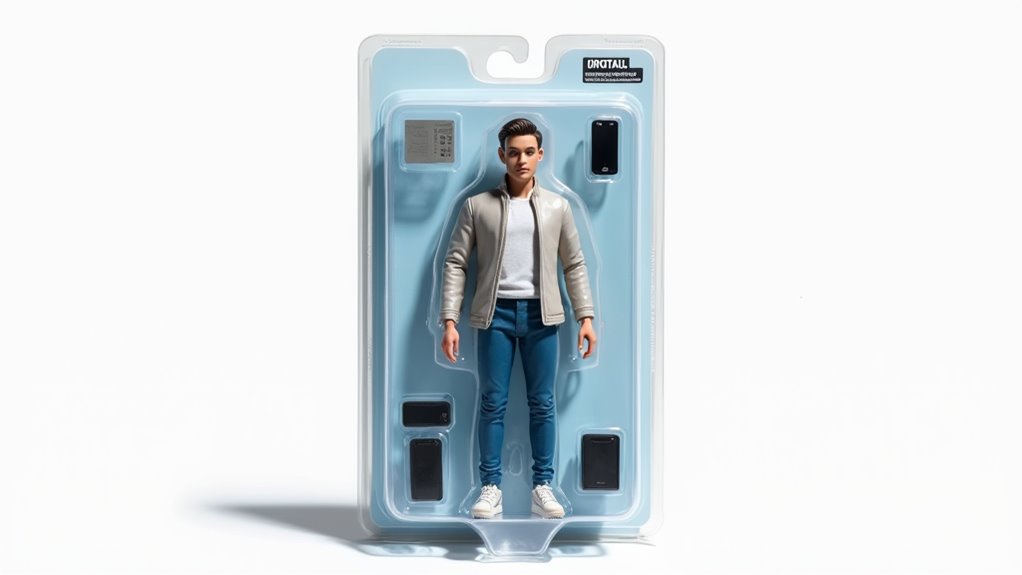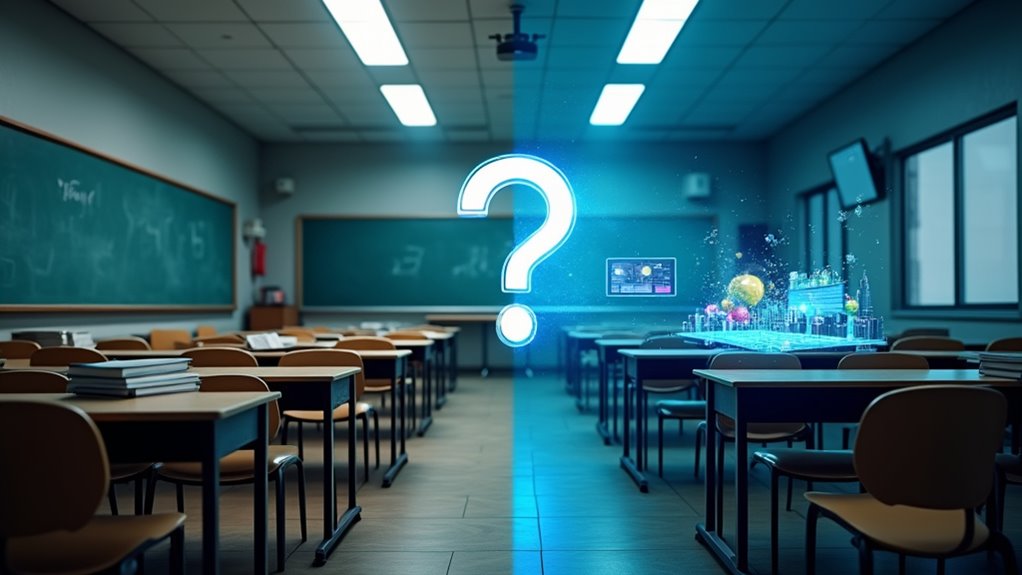The AI education debate is raging like it’s calculators all over again. Teachers are split between tech enthusiasts and digital prohibitionists, while students quietly use AI tools anyway. Research shows AI personalization boosts test scores by 62%, but critics worry about widening educational gaps and students losing critical thinking skills. California’s already legislating AI curriculum integration, while experts scramble to establish ethical guidelines. The battle between innovation and tradition continues to shape tomorrow’s classrooms.
When did the AI revolution in education shift from hypothetical to inevitable? Perhaps it was the moment ChatGPT burst onto the scene in 2022, transforming “AI in education” from futuristic concept to classroom reality practically overnight.
Teachers now find themselves in wildly different camps. Some embrace AI tools with the enthusiasm of early tech adopters, while others ban them with the fervor of digital prohibitionists. It’s like watching two different movies playing simultaneously in the same theater. Research shows that these personalized learning approaches driven by AI can lead to 62% higher test scores compared to traditional methods.
Students, meanwhile, are already voting with their keyboards. They’re using AI for everything from grammar checks to group projects—sometimes with teacher blessing, sometimes on the down-low. Remember when calculators were controversial? *This is that debate on steroids.*
The real question isn’t whether AI belongs in education anymore. That ship has sailed, packed its bags, and is currently sipping mai tais in “Inevitable Future” harbor. California’s AB 2876 legislation shows policymakers are already codifying AI literacy into curriculum requirements.
What keeps educators up at night is far more practical: How do you assess authentic learning when an AI can write that essay for you? How do you teach with AI while simultaneously teaching about AI? And perhaps most urgently—how do you prepare students for a world where critical thinking matters more than ever?
Research projects like BabyView and LEVANTE suggest AI might revolutionize not just teaching but our understanding of how learning actually happens. Imagine educational interventions optimized by AI simulations before they ever reach a classroom. The striking rise from 6% to 42% in Samsung’s Solve for Tomorrow competition teams using AI demonstrates this rapid technological adoption in student projects.
But concerns loom large. Will AI create educational haves and have-nots? Will it diminish essential human interactions? Will students become so dependent on digital crutches that they never develop intellectual muscles?
The path forward requires a common framework for AI literacy—one that balances user skills with critical perspectives. Because education isn’t just about adoption; it’s about thoughtful implementation that serves students, not algorithms.
Like it or not, AI is education’s new permanent roommate. The question is whether we’ll establish healthy boundaries or let it eat all the food in the fridge.
The Stanford AI+Education Summit highlighted the need for ethical frameworks in AI tools to ensure responsible implementation while protecting student privacy and addressing potential bias in educational technologies.









